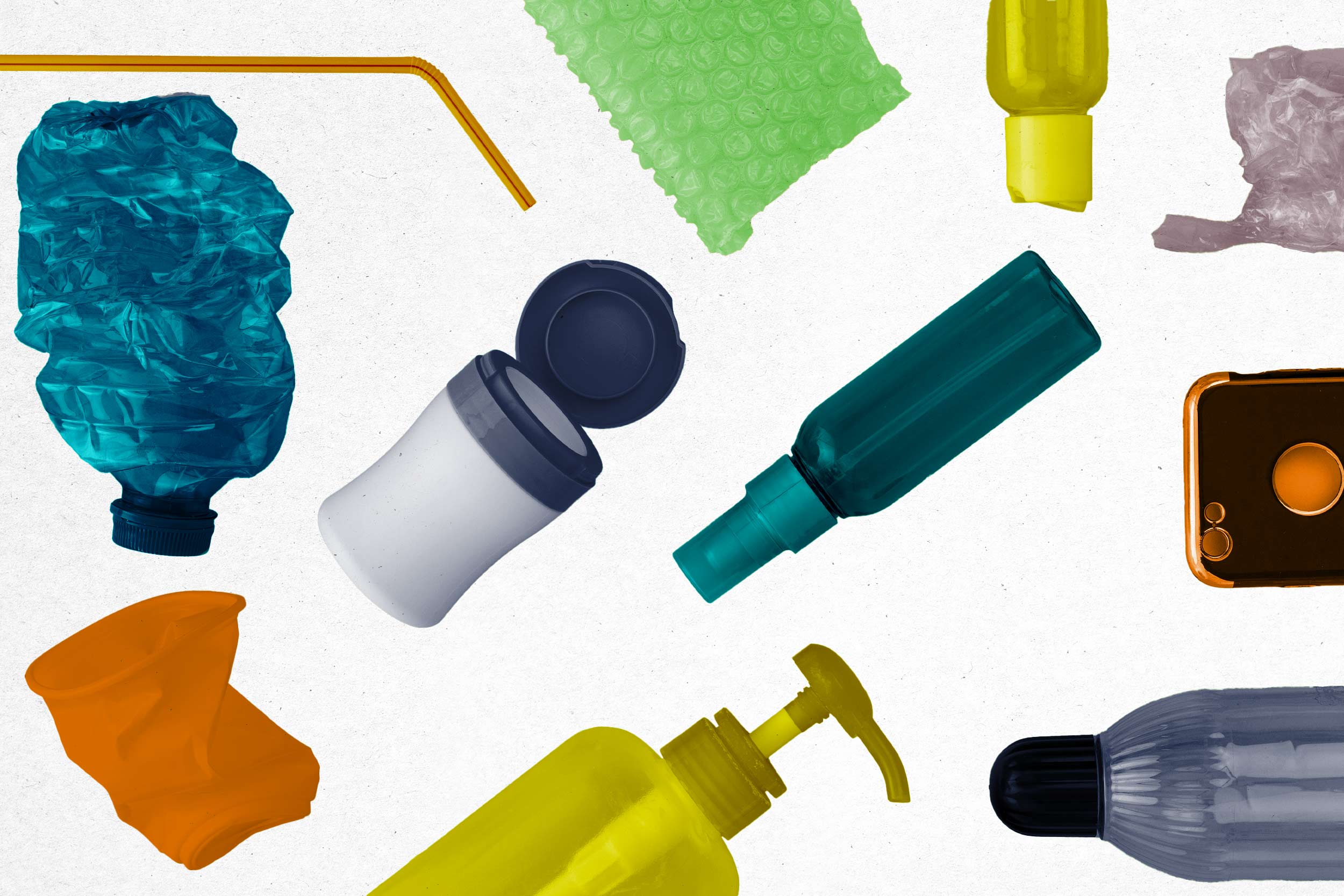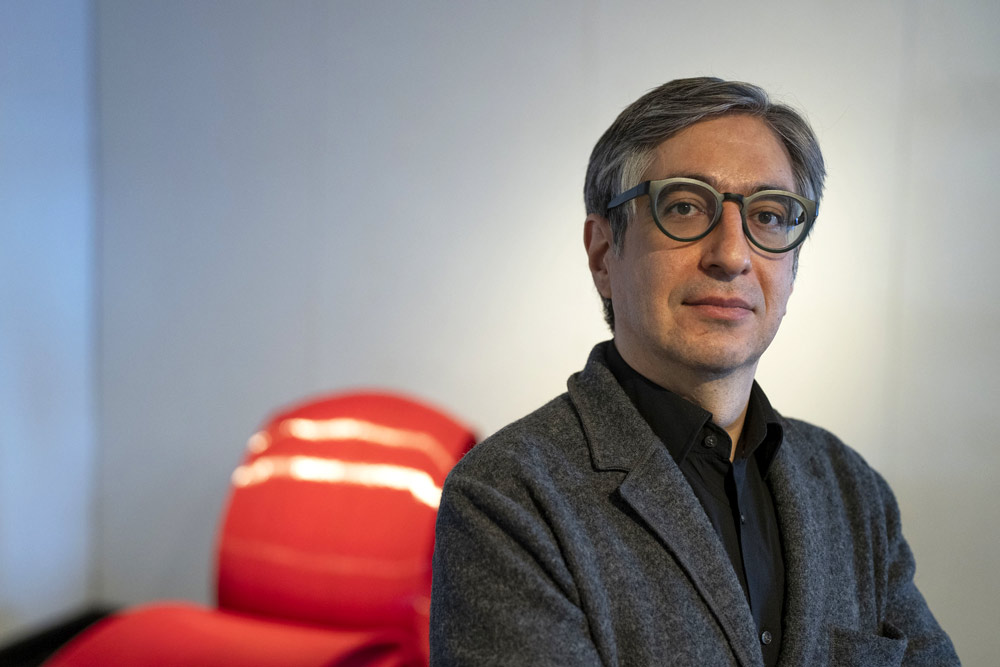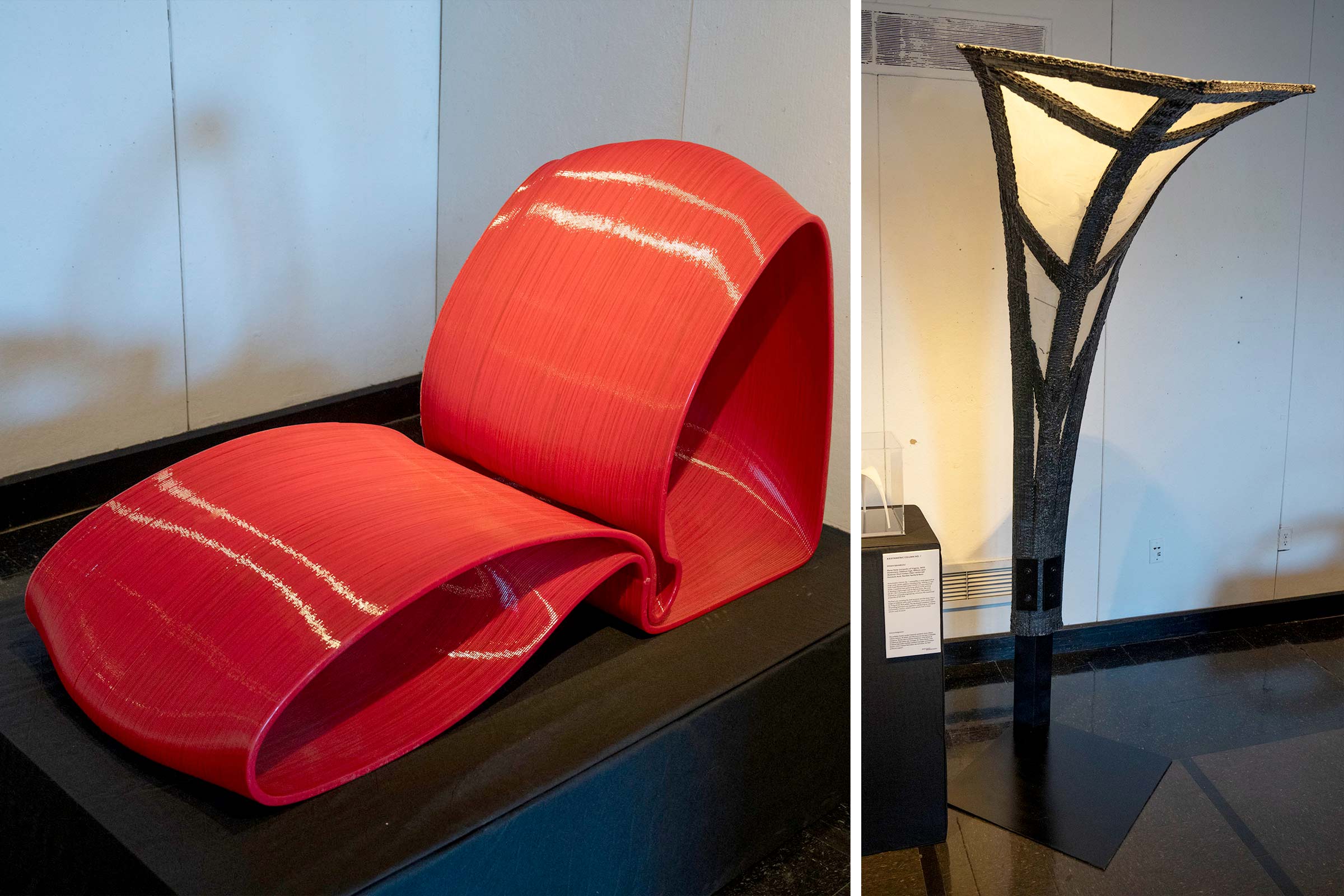Funded by the Jefferson Trust and the office of the Vice Provost for the Arts, the symposium, “Being Plastic/Becoming Plastic,” included an exhibition at Campbell Hall’s Elmaleh Gallery. The display lasts through Wednesday and features works by researchers, designers and students studying innovations in plastic through scalable fabrication techniques.
UVA Today reached out to Ehsan Baharlou, the assistant professor who led the symposium and curated the exhibition, to talk about one word: plastics.
Q. Plastic was once considered a miracle creation, but now it’s become the bane of the environment, filling landfills and flooding the ocean. How did we get to this point?
A. The history of humans and their environmental impact can be understood through the development of plastic production. Plastics were heralded as a milestone in human ingenuity because of their ability to outlast existing alternatives such as glass, metal and ceramics. They are flexible, durable and cost-effective.
Plastics, however, have outlasted their initial uses. Obsessed with this toxic innovation, we cannot imagine a world without plastics. They have enriched all aspects of life with beauty and ugliness. One day, we perceived being plastic, and today, we are losing ourselves to becoming plastic.
Q. How many different types of plastic are there?
A. We have three class systems of plastics: thermosets, thermoplastics and elastomers.
We have seven types of recyclable plastic that we use every day. You can check their number whenever you pick up a plastic bag or a plastic cup. Their recyclability varies. Some of them can easily be recycled, while others are rarely recycled and end up in landfills.
Q. There is a lot of talk and effort to recycle plastic, but there are also reports that recycling simply doesn’t work because it is not cost-effective. Does recycling work?
A. Even if recycling doesn’t work – which requires scientific facts to support this claim – we must change our linear understanding of ‘take-make-dispose-of’ plastics as raw materials, products and disposal waste.
At the local level, we can start with our UVA community. Have you visited the recycling division of UVA? UVA’s 2020-30 Sustainability Plan aims to reduce the disposal of waste in our community by 30% from where we were in 2010.













